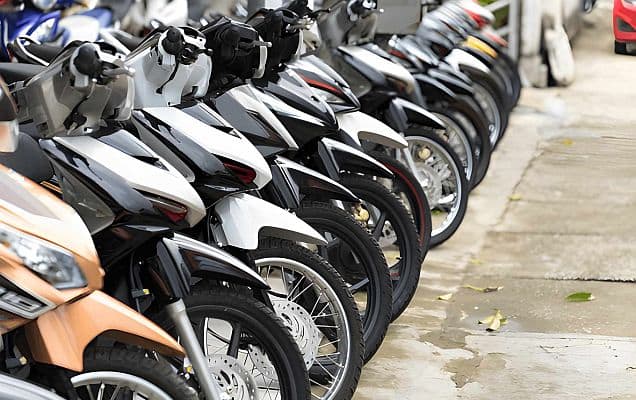At the invitation of H.E. Dr. John Pombe Magufuli, President of the United Republic of Tanzania, H.E. Mr. Narendra Modi Prime Minister of India paid a State Visit to the United Republic of Tanzania from 9th to 10th July 2016.

During the visit, Prime Minister Modi held official talks with President Magufuli. The talks were held in a warm and cordial atmosphere reflective of the longstanding relations of brotherhood and friendship that exist between the two countries and their peoples.
Recalling the solid foundation upon which the relations were built, that can be traced back to the 1960s, the two sides applauded the continued friendly relations and cooperation that have stood the test of time and affirmed their resolve to promote and advance these relations and foster further partnership and cooperation in various areas. The two sides expressed satisfaction at the conclusion of bilateral agreements that covered fields of water, small scale industries, development partnership and economic cooperation.

The two leaders recognized positive developments in terms of bilateral trade, investment and collaboration between the businesses in India and Tanzania in various areas and appreciated the contribution of the Indian duty free tariff preference scheme towards boosting considerably Tanzania’s exports to India in recent years.
The Prime Minister welcomed the resolve of the President of Tanzania for nation-building through industrialization, developing agro-based enterprises and promoting small and medium sector businesses in the country which would create opportunities for enhanced business cooperation between the two countries.
The two leaders agreed that it was imperative to broaden cooperation to include potential areas such as manufacturing, development of small scale industries for rural developmental needs, power production and distribution, gas exploration and usage, infrastructure development, agriculture especially in crops like pulses, mining and information technology. Greater cooperation in the area of scientific cooperation between the two countries was also encouraged.
Recognizing that development partnership is an important facet of bilateral relations, the Tanzanian side expressed appreciation for India’s continued commitment towards supporting Tanzania’s development efforts through providing technical and capacity building training and extension of developmental projects using grants and concessional credits.

The President appreciated India’s consistent support in the provision of training slots offered annually to Tanzanian officials and specialists in the fields of information technology, entrepreneurship, management, SMEs, rural development, water, agriculture, defense, and parliamentary studies. He further invited greater participation of qualified Indian personnel specifically teachers and trainers in areas of mutual interest.
The two Leaders commended the recent completion of Upper Ruvu potable water supply project that was executed with support from India through concessional credit, which will more than double the supply of clean water to the city of Dar es Salaam and its surroundings. They noted the excellent progress of other water supply projects to include that of distributing and utilizing waters of Lake Victoria in the towns of Tabora, Nzega and Igunga as well as the water project in Chalinze region. They welcomed the extension of Indian concessional credit facility for the water supply project in Zanzibar. They commended the establishment of IT Resource Centre at Nelson Mandela African Institute of Science & Technology, Arusha achieved with grant from the Government of India. They also appreciated the cooperation in hydrography in terms of developing navigational charts and capacity building.

Prime Minister Modi affirmed India’s continued readiness to extend further support towards development objectives of the government of Tanzania in line with its development vision in the fields of water, small scale industries, e-governance, and health care. He announced the donation of a radiation therapy machine, ‘Bhabhatron II” to Bugando Medical Centre, Mwanza by India that was being installed currently and committed to further gifting of essential medicines, ambulances, and medical equipment to Tanzania.
The two leaders recognized the growth in vibrancy of people-level relations between the two countries that were encouraged by the introduction of e-tourist visas to Tanzania last year and the subsequent removal of visa fees for Tanzanian business travelers to India since December 2015. The two Leaders then jointly announced the holding of a festival of Indian culture in Tanzania within a year.
The Prime Minister conveyed his good wishes for Tanzania’s Chairmanship of the East African Community and appreciated the efforts of the President of Tanzania to promote regional cooperation while the President reiterated Tanzania’s continued support for India as a permanent member of an expanded UN Security Council. The President also expressed appreciation for India’s initiative on International Solar Alliance and confirmed Tanzania’s membership in the International Solar Alliance. The leaders expressed their strong condemnation of terrorism in all its forms and manifestations and stated that there can be no justification for terrorism whatsoever. They expressed satisfaction on the holding of bilateral counter-terrorism consultations in early-2016.
The two leaders agreed to ensure that the Tanzania India Joint-Commission Meeting and Joint Trade Committee session is held within the coming year to take advantage of the current momentum of cooperation between the two countries.
H.E. Dr. John Pombe Joseph Magufuli applauded the successful conclusion of the last India Africa Summit held in October, 2015 that was attended by the then Vice President of the United Republic of Tanzania. He noted that the many projects that had been executed so far, and those in the pipeline were a direct result of discussions held at India Africa Summits and promised to endeavor to attend the next one.
H.E. Mr. Narendra Modi expressed appreciation and gratitude for the warm reception accorded to him and his delegation and applauded the fruitful talks with the President of Tanzania which have paved the way for significant expansion of bilateral cooperation. Prime Minister Modi extended an invitation to the President of the United Republic of Tanzania to pay a reciprocal visit to India in the future and H.E. Dr. John Pombe Joseph Magufuli accepted the invitation.













